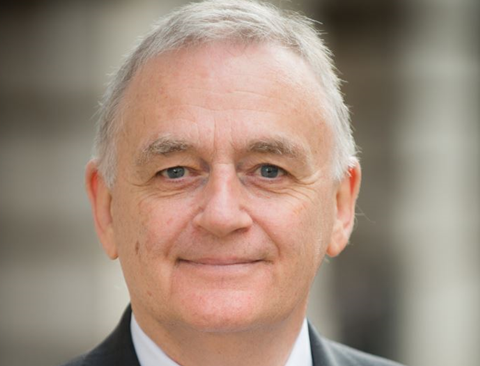Brexit? Discount the torrent of words from those talking their own book. Ignore pundits, including this one.

Track ‘wisdom of the crowd’ numbers, such as the FTSE 100 – presently soaring. Monitor the actions, or inaction, of your peer group. That is all the advice I dare offer to those wondering whether to stick, twist or fold on London, now that the UK is to leave the EU: well, possibly.
Instead I will offer the thoughts of a household-name property figure who would, sadly, rather not be named. But first, the bad news: fund managers have clipped 5% from the value of their portfolios in the wake of Brexit; Standard Life, Aviva and M&G have each suspended trading in a property fund; and M&G, Columbia Threadneedle and Fidelity are among half a dozen assets managers who have said they will move staff out of the UK or set up funds in EU countries.
They all met on 5 July in a bit of a panic. Perhaps they should listen to the words of Rich Handler, the fittingly-named boss of US Investment Bank, Jefferies, who scorns knee-jerk reactions based on media scare stories. ‘When it comes to investing, politics or just life decisions, nothing is more important in this current new world than actually doing your own work.
‘The reality of the new media business model is that clicks are what matters and negative/controversial/bombastic stories sell better and faster today than the direct facts. Meet with the management teams personally, versus relying on all the social media mob reactions.’ Well, that is me and my ilk put in our places. But Handler is right. Hence what follows comes from my unnamed source.
‘Everyone is reviewing their plans. But is Brexit going to happen? That’s still the big question. London remains the most transparent place to do business in Europe. France and Germany are politically corrupt; you have to know the right people [in order] to operate. Even so, the banks will have to move their European HQ’s to Paris or Berlin in order to operate in the EU.’
US-UK relationship looks secure
But the US-UK relationship looks secure. Morgan Stanley has affirmed its intention to stay in the UK, good news for Canary Wharf. Goldman Sachs is also going nowhere. ‘There will be no immediate change to where we conduct our business,’ says Goldman. Just as well. The US investment bank is well into the construction of a huge new HQ close to it’s current Fleet Street base.
Our source names some corporate winners and losers. ‘The likes of Great Portland Estates and Derwent London will just carry on in the centre of London. But I would not be surprised if British Land took a look at the timing of their plans for the expansion of Broadgate. I also think that Canary Wharf has always been the sort of place that is last to let and first to fail.’
I could not reach Canary Wharf boss, Sir George Iacobescu, he was traveling. But he would likely rebut the claim. After all, 100,000 people work at Canary Wharf. But there are cracks in the edifice. The European Banking Agency will presumably not renew it’s £1.8 mln (€2.1 mln) a year lease in 2020. But the key signal to watch for are changes to the multi-billion Wood Wharf extension.
The iconic ‘will they won’t they’ project is 22 Bishopsgate, a 62-floor tower of 130,000 m2, the project entirely equity funded by French insurer, AXA. Tens of millions have been spent working up plans. The stump of the previous failed skyscraper has been ripped out. ‘All options are being considered,’ AXA stated after the Brexit vote. Gulp.
Caution now hangs in the air. ‘People would be wise to just sit tight and see what happens over the next three months’, says our source. An internal note to staff from JLL EMEA president Christian Ulbrich puts it more vividly: ‘Once the first dust has settled, a more familiar picture is likely to re-emerge – in real estate terms, what was right before the vote will also be right after it.’
And once the dust had settled? There is only one number that needs to be watched: how many more people are forecast to settle in London over the next 20 years? The long-term health of both the residential and commercial property markets is underpinned by population growth. Right now the population is forecast to grow by 1.5 million to 10.25 million by 2036.
Peter Bill is author of Planet Property and former editor of Estates Gazette










